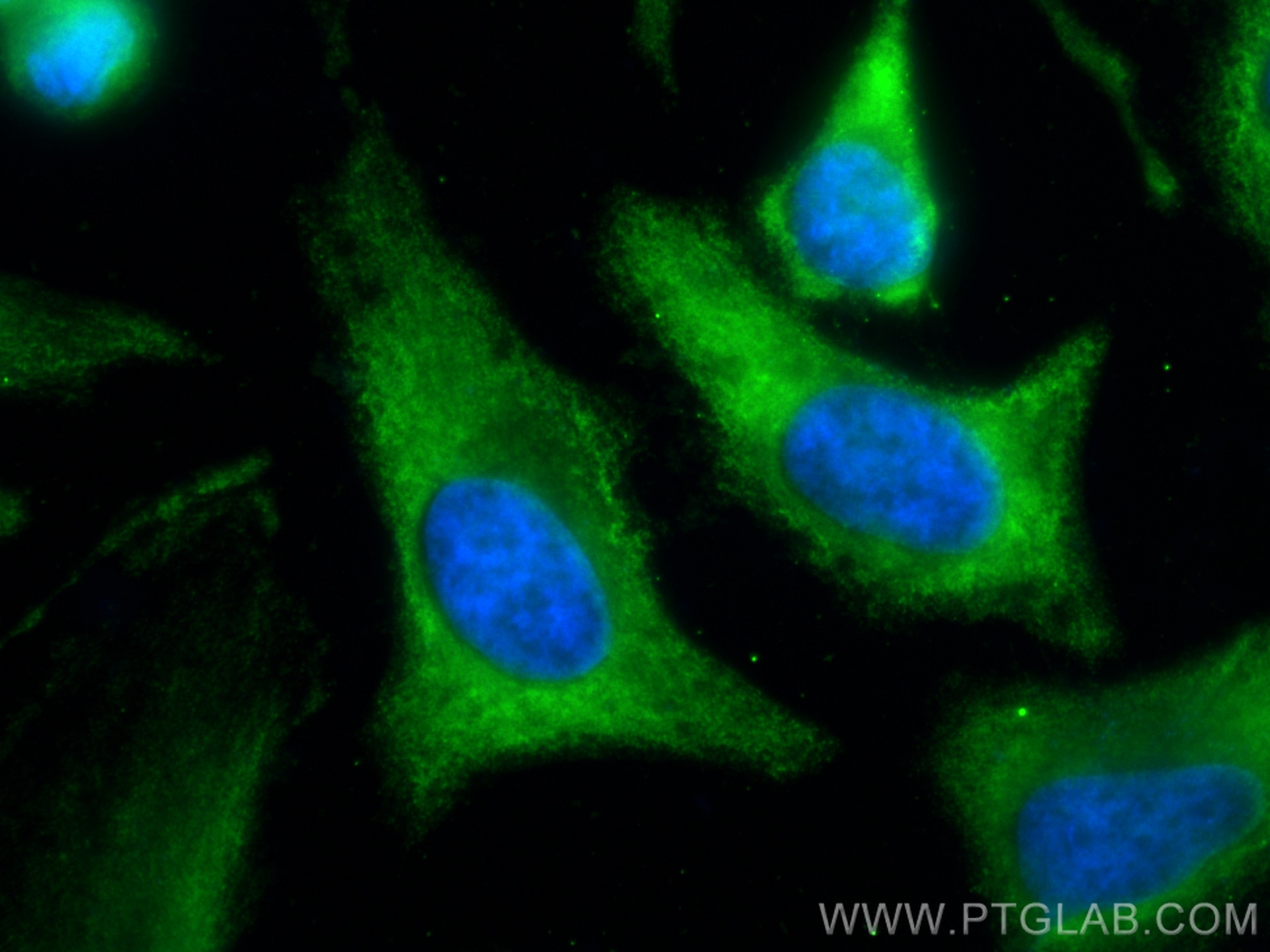- Featured Product
- KD/KO Validated
TPI1 Monoklonaler Antikörper
TPI1 Monoklonal Antikörper für IF/ICC
Wirt / Isotyp
Maus / IgG1
Getestete Reaktivität
human, Maus, Ratte
Anwendung
IF/ICC
Konjugation
CoraLite® Plus 488 Fluorescent Dye
CloneNo.
2E7E5
Kat-Nr. : CL488-67515
Synonyme
Geprüfte Anwendungen
| Erfolgreiche Detektion in IF/ICC | HeLa-Zellen |
Empfohlene Verdünnung
| Anwendung | Verdünnung |
|---|---|
| Immunfluoreszenz (IF)/ICC | IF/ICC : 1:50-1:500 |
| It is recommended that this reagent should be titrated in each testing system to obtain optimal results. | |
| Sample-dependent, check data in validation data gallery | |
Produktinformation
CL488-67515 bindet in IF/ICC TPI1 und zeigt Reaktivität mit human, Maus, Ratten
| Getestete Reaktivität | human, Maus, Ratte |
| Wirt / Isotyp | Maus / IgG1 |
| Klonalität | Monoklonal |
| Typ | Antikörper |
| Immunogen | TPI1 fusion protein Ag16653 |
| Vollständiger Name | triosephosphate isomerase 1 |
| Berechnetes Molekulargewicht | 27 kDa |
| Beobachtetes Molekulargewicht | 27 kDa |
| GenBank-Zugangsnummer | BC007086 |
| Gene symbol | TPI1 |
| Gene ID (NCBI) | 7167 |
| Konjugation | CoraLite® Plus 488 Fluorescent Dye |
| Excitation/Emission maxima wavelengths | 493 nm / 522 nm |
| Form | Liquid |
| Reinigungsmethode | Protein-G-Reinigung |
| Lagerungspuffer | PBS with 50% glycerol, 0.05% Proclin300, 0.5% BSA |
| Lagerungsbedingungen | Bei -20°C lagern. Vor Licht schützen. Nach dem Versand ein Jahr stabil. Aliquotieren ist bei -20oC Lagerung nicht notwendig. 20ul Größen enthalten 0,1% BSA. |
Hintergrundinformationen
TPI1(Triosephosphate isomerase) is also named as TIM, TPI and belongs to the triosephosphate isomerase family. It is a key enzyme in cell metabolism that controls the glycolytic flow and energy production through the interconversion of dihydroxyacetone phosphate (DHAP) and D-glyceraldehyde 3-phosphate (G3P)(PMID:19251756). Defects in TPI1 are the cause of triosephosphate isomerase deficiency (TPI deficiency). It can exsit as a homodimer(PMID:18562316).
Protokolle
| PRODUKTSPEZIFISCHE PROTOKOLLE | |
|---|---|
| IF protocol for CL Plus 488 TPI1 antibody CL488-67515 | Protokoll herunterladen |
| STANDARD-PROTOKOLLE | |
|---|---|
| Klicken Sie hier, um unsere Standardprotokolle anzuzeigen |


